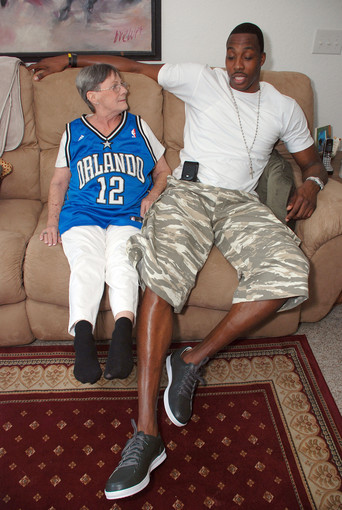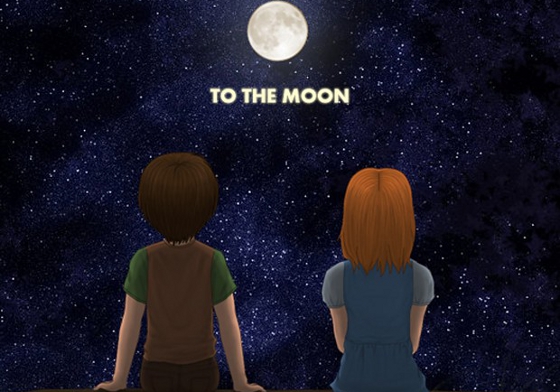[sorry for the long break guys. I’ll try to find time to update what’s going on in my life in a future post]
Every once in a while, we revisit the issue on the label “gamer”, and usually, the enlightened voices (both within Christian and secular gaming circles) make the very reasonable argument that while they love games and love to talk about games, there are connotations and implications of being called a “gamer” which they reject (e.g. the implication that gaming is the most important activity in their lives). Thus, they feel the need to reject the “gamer” label, distance themselves from self-identified “gamers”, or at the very least, point out how the label is unhelpful.
Most recently, my esteemed editor-in-chief Zach and Ben Kucherra (over at Polygon) wrote similar articles on this issue. I get what they are saying, and on some level, I agree with them. Yes, a healthy individual who plays games as a hobby should have many other things more important than gaming (e.g. family). Yes, many self-identified “gamers” display behavior which is disturbing (e.g. abusive fanboyism), and I can see why you might want to distance yourself from them. And from a Christian perspective, yes there is a problem with our hearts when we more closely identify with the category “gamer” than the category “follower of Jesus”. I agree to all of these points. But still I think we (or Christians at least), shouldn’t reject the term gamer. This is why:
1. The “Gamer” Subculture Exists.
I find it more helpful to think of “Gamers” not as a label for individuals, but as a tribe (or more accurately, a collection of loosely-related tribes). Tribes, as explained by Seth Godin, refer to a group of people with similar interests, connected by the internet, who share the same cultural language and practices. I am part of a small tribe of people from the Southeast Asian region who play Hearthstone. Our community leaders are Silfer and Babael. Our champions are zGGleoz, WaningMoon and Kero. We are also part of a larger tribe of Hearthstone Players in general. Together, we discuss over the recent Naxrramus card releases, mull over how it will affect the meta, and experiment with new deck archetypes. We follow personalities such as Trump, Kripparian and Reynad, read websites such as IHEARTHU, /r/hearthstone/ and LiquidHearth, and we all have an opinion over the controversial Dreamhack finals match between Rdu and Amaz. We are a part of a even larger tribe of players of CCGs or collectible card games. Occasionally, we have cross-tribal discussions with the Magic:The Gathering tribe to talk about the use of RNG in card games, and general strategies which crosses both games (e.g., managing your mana curve, the Beatdown vs Control dichotomy). If you are from any of these tribes, you will recognize some of the terminology I’ve used. If you’re not from any of these tribes, you will find what I’ve just described very foreign. That’s precisely the point I will like to make.
The “Gamer” subculture already exists as a giant collection of many overlapping tribes. We throw names like Kojima, Levine, Molyneux and Miyamoto around. We use terms like “platformers”, “RPG elements”, “tight mechanics”, “non-linear narrative” and know what we’re talking about. Sure, we have tribes which bicker against each other, e.g. the Playstation fanboys vs the XBox fanboys, but these two tribes will collectively band together as one when they feel the need to diss Electronic Arts for their DRM policies.
2. We are part of the subculture, whether or not we like all it entails
If we not only play games, but also talk about it, read about it, and write about it, we are part of the tribe, because what we do connects with other tribe members. Recently, some people have been replying to my article on Asura’s Wrath, and I was initially shocked by how they failed to understand what I was trying to say. But now I realize that I’ve been trying to write as a member of the “gaming community” but I was only using cultural language, concepts, values and intuitions which can only be understood by a much smaller tribe, i.e. an Evangelical Christian Gaming Community with Calvinist leanings. I failed to realize that as long as I write about games, I am part of a larger tribe and I need to think about how my article would be perceived by the larger tribe (for this very reason, I have much appreciation for the folks at Gamechurch.com).
Now I am part of the tribe of people who play PS3 games. I may not agree with some of the actions and behavior of people who call themselves PS3 gamers, be it fanboys who diss XBox gamers, people who say abusive things in multiplayer games, and folks who see playing (and defending) the PS3 as the most important thing in their lives. But, as long as I care about some of the same core things they care about (what PS3 games are coming out? Is XYZ game worth playing? What’s going to happen to Sony in the long run?) and I read, talk and write about it, I am part of this tribe. I may not agree with the actions of my other fellow-tribe members, I may speak very firmly against it even, but I may not disassociate myself with this tribe unless I say “enough is enough, I will never play the PS3 again”.
3. Rejecting the “Gamer” label is at best a lost opportunity, at worst it is poor witness
If someone who proudly calls himself “a gamer”, and he comes across an article explaining why the author of the article refuses to call himself a gamer, and the author distances himself from people who do, what is the reader likely to feel? The perceptive, mature and enlightened reader may see wisdom behind those words, and re-examine their own lives or their own personal relationship with gaming. But more than likely, the reader is just going to feel rejected or worse, condescended. After all, one of their own, a fellow tribe member, has called them out for having “no real life”. By refusing to even share a label with them, we tell them that we are not interested to empathize with them, we are not interested in them as people.
And that’s a tragedy, because as Christians, Christ calls us to do better. Why are “gamers” so defensive about their favorite game and favorite platform? Why do “gamers” feel like gaming is the most important thing in their lives? We need to think about these issues harder, and think about these issues more pastorally. Instead of trying to distance ourselves from them, can we think about how we can better serve them, love them and point them towards Christ? If I am to serve these people out of the love of Christ I have for them, how am I best able to do so? If ultimately I am to point them towards Christ, how am I best able to do so? I really don’t think the answer is to reject the “gamer” label, which they wear so proudly, because that is tantamount to rejecting them is it not? Sure, we can (and should!) point out that there is something very unhealthy about revolving your entire life about gaming, but outright rejection is hardly the best way to do so.
Maybe one day we can build relationships and have conversations which go like this:
Do you play games because there’s nothing more awesome of better in your life? I used to feel the same way too (and even sometimes I still do now)! I used to play games so much, because the rest of my life just sucked. But guess what, I was only delaying my problems, and gaming just made things worse because I delayed things further and further until I couldn’t delay them anymore. Then my life truly sucked. That was when I realized I was playing games not just because the games were great (and they are!), but because I was using it as a substitute to run away from my challenges in real life….















